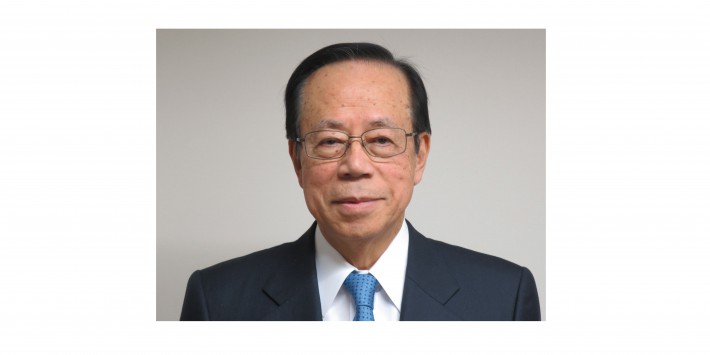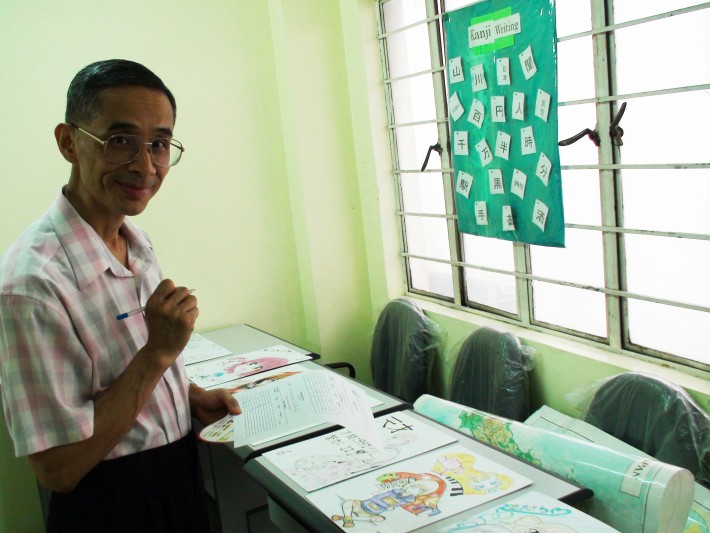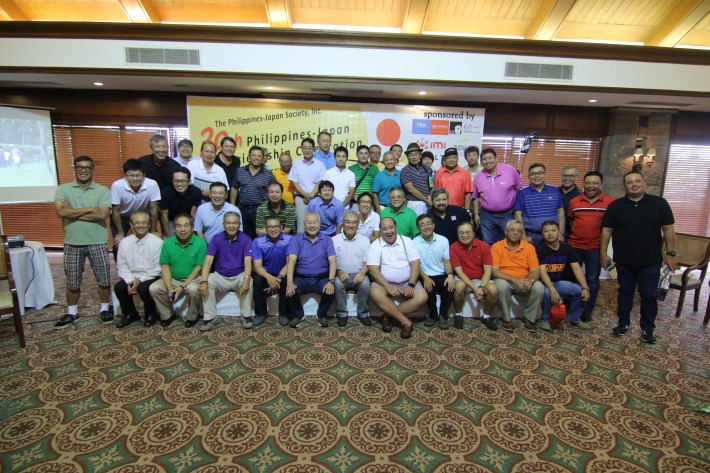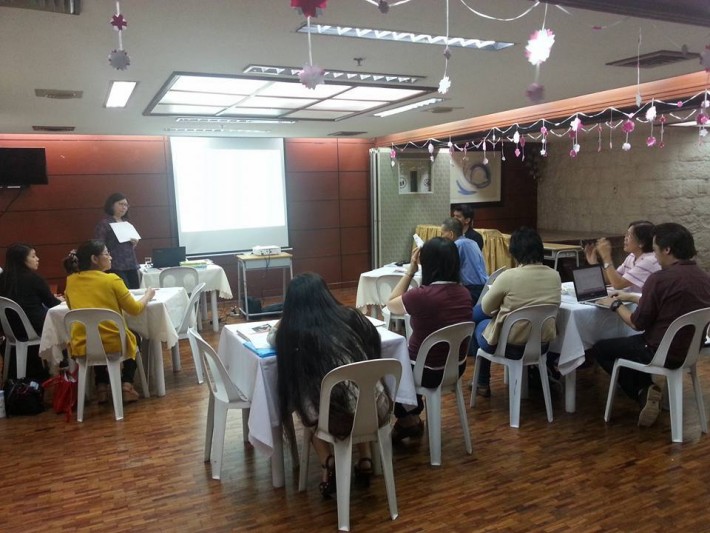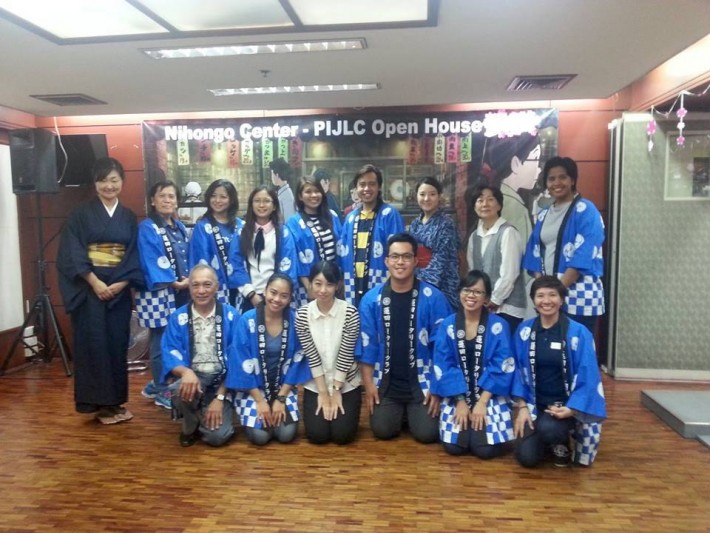On August 9, 2015, The Nihongo Center Foundation held its first Faculty Development Program (FDP) meeting at its Makati campus.
Fast forward to 2017 and the program has not only elevated the teaching skills of individual teachers but has also fostered serendipitous collaboration among faculty members, which ultimately supports the school’s innovative works in developing and improving Nihongo instruction in the Philippines and maintaining its position as the preeminent institution for Japanese Language education for Filipinos.
In the following interview, FDP program manager, Ms. Carmencita K.C. Biscarra or “Keli Sensei” as she is fondly referred to at NCF, talks more about the background of the program and her insights into being a Filipino Nihongo teacher.
Q: Why was the FDP program started?
KS: Management felt that NCF/PIJLC teachers needed to upgrade their teaching skills to meet the increasing demand for Nihongo classes by various industries.
Q: What are the specific goals of the program?
KS: Aside from providing training for teachers to expand their teaching/career skills, the program also aims to develop standard teaching techniques so that we will be able to provide quality Nihongo courses in all classes.
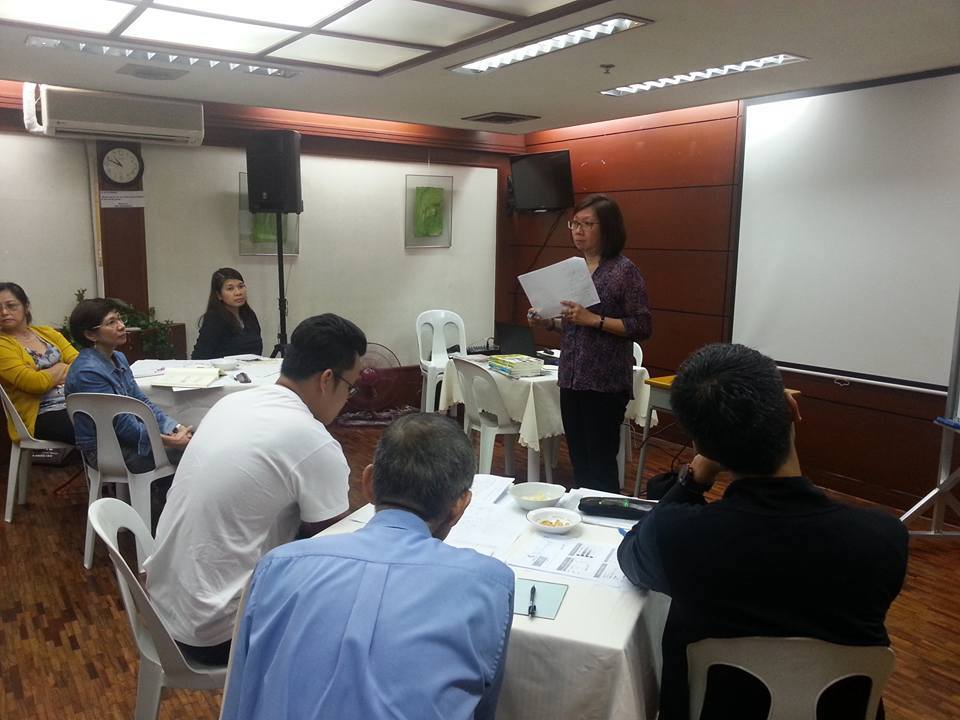
Keli Sensei heading a discussion at a recent FDP at NCF Makati
Q: How do you conduct the training sessions/meetings (i.e. training flow, regular activities, materials used in the training, etc.)?
KS: The program for each meeting includes a study session regarding Nihongo Education—most often we would have workshops and sharing to reflect on our teaching methods and learn from other teachers’ techniques.
New teaching techniques are introduced by having the faculty members experience these techniques first hand (like Shadowing). Sometimes teachers are requested to handle a session by sharing what he/she considers a useful teaching technique.
There is also an update every meeting regarding admin policies and reports on activities related to the school, like when we attended the ASCOJA symposium in Bangkok last year, or when we visited schools and universities in Japan to look for possibilities for exchange programs.
Q: What significant accomplishments have happened since NCF started the program?
KS: We’ve been able to develop our own rigid teacher-training program, which was implemented for the training of our four new teachers who have graduated and are now actively teaching at the school.
In the teacher-training program, aspiring Nihongo teachers are asked to attend workshops to learn the basic process in teaching a lesson, and then write lesson plans for the first course that they will be handling (Basic Japanese 1).
They are then required to do class observations for an entire Basic Japanese 1 course, each time writing a reflection on the techniques observed and comparing one’s lesson plan with the class flow. Discussions regarding this reflection sheet would then be held with me.
At the end of this class observation phase of the training, the trainees move on to handle their own Basic Japanese 1 class, where I would be observing each session. At the end of every class, we hold a discussion to assess how the class went and share points for improvement.
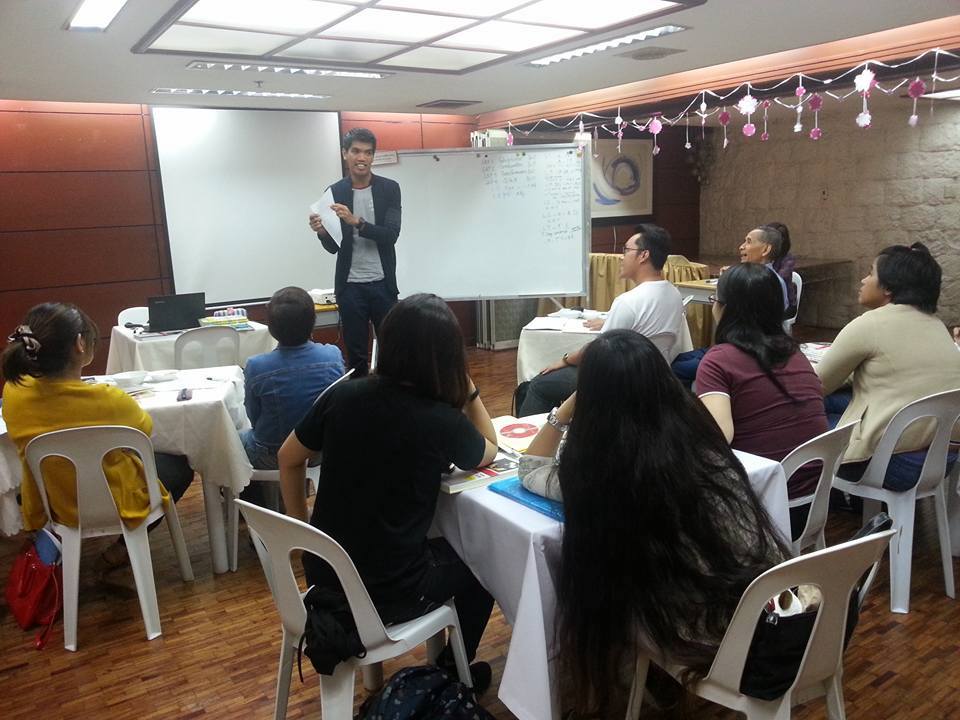
Teachers listening attentively during a sharing session at an FDP meeting
Q: Other thoughts about the FDP and teacher-training program of NCF?
KS: The FDP has been an avenue for us teachers to improve our skills and develop camaraderie among faculty members—experienced teachers and newcomers alike.
Through the program, we have also become more involved in school matters, which is also beneficial to NCF. The frequency of the faculty meetings resulted in increased input of ideas from the teachers with regards to school matters and an overhaul of the courses/materials of the school.
For the teacher-training program, it’s done one-on-one, so it takes a lot of time and dedication both on the part of the trainee and trainer. In that sense, you can see that our training is designed for aspiring teachers who really have a heart for teaching and can see themselves working as a Nihongo teacher for years to come.
Feedback about the FDP has been very positive with the participants concurring that the regular meetings and sharing have helped them evaluate their strengths and weaknesses and find ways to improve their teaching skills. They also believe that it’s high time to have a professional development program like the FDP and standardize teaching techniques so that they can deliver quality lessons each time to their students.
The Faculty Development Program is open to NCF and PIJLC teachers who meet the following requirements:
- Must possess Nihongo knowledge of JLPT N2 level
*N3 passers may be considered, provided that the individual continues to take JLPT N2 regularly until he/she passes N2.
*JLPT N2 takers will be required to attend FDP review sessions
- Must possess a baccalaureate degree, or have definite plans to acquire a degree in the near future
- Must commit to participate in the FDP
- Must not be an owner/co-owner of an institution offering Nihongo Courses
FDP meetings are done quarterly on a Sunday morning loosely set on February, May, August, and November (i.e. four times a year). The alternating venues are NCF Makati and Manila campuses.
For more details on how to be part of the Nihongo Center Foundation faculty, you may contact:
Makati Campus
Tel. 892-4916 to 19
E-mail: makati@nihongocenter.com
Manila Campus
Tel. 735-3179
E-mail: ncfmanila@gmail.com
=================
Resources:
PowerPoint Presentation: Introduction of the FDP
PowerPoint Presentation: Opening Remarks of NCF Pres. Philip B. Sanvictores on 1st FDP Meeting, August 9, 2015
FDP Photos


